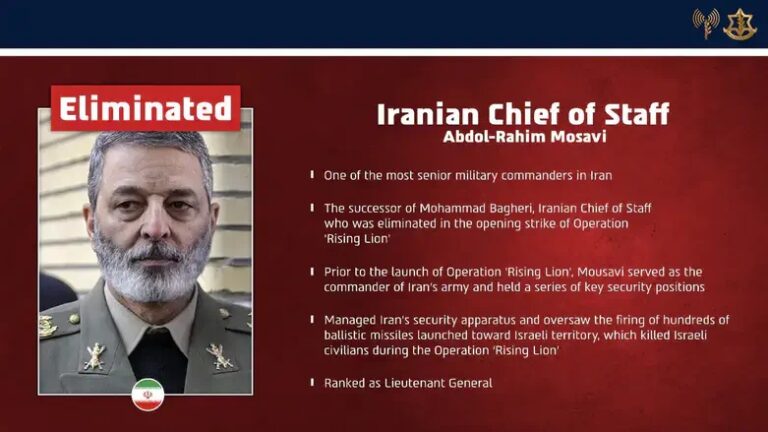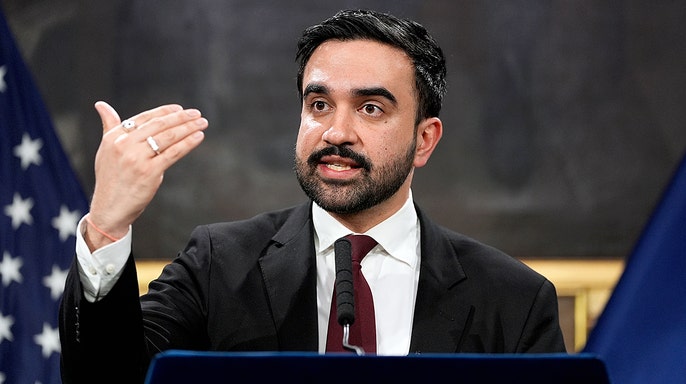 The Rebbe, the biography of the Satmar Rebbe by Rabbi Dovid Meisels, first appeared in stores at the end of December. It quickly sold out and now the second printing has arrived in stores. The book is called “The Rebbe: The Extraordinary Life and Worldview of Rabbeinu Yoel Teitelbaum.”
The Rebbe, the biography of the Satmar Rebbe by Rabbi Dovid Meisels, first appeared in stores at the end of December. It quickly sold out and now the second printing has arrived in stores. The book is called “The Rebbe: The Extraordinary Life and Worldview of Rabbeinu Yoel Teitelbaum.”
The book gives a general picture of who the Rebbe was and what he accomplished for Jewry in America. There were many rabbis who bridged the gap of the Holocaust and rebuilt Jewry in America. Some built yeshivas, some built girls’ schools, some took responsibility to decide halachic issues, some established kashrus and some dedicated their lives to distributing charity. The Satmar Rebbe stands out in that he did all of the above, and yet there was more. He was unique in his ambition to rebuild an entire European Jewish community in America – an ambition in which he succeeded even beyond his own expectations.
His main guiding principle was truth – to stick to the authentic Torah, even at a time when many opposed him. He held that most of the mistakes made by others in his time had been due to the pressures of chanufah – the perceived need to please the wicked.
While others made small concessions in Jewish observance in consideration of the time and place, the Rebbe believed that with G-d, there can be no compromises. We must continue with what we received from our parents and teachers – in matters of modesty, Torah and Jewish faith.
The feat of transplanting Europe to America is all the more amazing when we realize how much the Rebbe suffered for his outspoken stance on Zionism, and his conviction that all the great pre-war rabbis who opposed Zionism were not made irrelevant by the emergence of the state. Many people who would have supported his efforts withdrew their hands, and the Rebbe’s accomplishments were built largely on the meager contributions of poor wage-earners, almost all recent immigrants.
The book contains four sections (out of a total of twelve) detailing the battle against Zionism waged by the Rebbe and other rabbis of his time. The rise of the movements of Zionism, Mizrachi and Agudath Israel are all described, with the Rebbe’s reactions to them. The establishment of the state, as well as the Rebbe’s numerous public demonstrations against it are described. Also covered are the Rebbe’s visits to the Holy Land, during which he gave vital spiritual and material support to the anti-Zionist Jewish communities there. There is a section on the Rebbe’s magnum opus, Vayoel Moshe, as well as a section on his activities and positions in the wake of the 1967 war.
It has been more than thirty years since the Rebbe’s passing and until now, no biography of him has appeared in English, although many have appeared in Yiddish and Lashon Hakodesh. One reason for this may be the Rebbe’s strong opposition to the use of English as a medium of speaking and reading within the Jewish community. But as the years go by, demand has mounted outside the Satmar community for information about the Rebbe’s life, his positions and achievements.
The biography was written by Yirmiyahu Cohen under the direction of Rabbi Dovid Meisels, author of the popular Secrets series. Rabbi Meisels is a grandson of the Veitzener Rav, Rabbi Tzvi Hirsch Meisels, whose mother was the Rebbe’s first cousin. The Veitzener Rav was a devoted follower of the Rebbe who worked closely with him throughout his life, and raised his family in the Satmar path.
Click HERE to purchase this book – Israel Book Shop!











19 Responses
fantastic! The Satmar Rebba, ZT’L, is who put my husband’s tefillin on for the first time 🙂
It just happens to be that he rewrote some parts of history, for example that the only yeshiva at that time was tzelim, he totally omits The holy Klausenberger rebbis yeshiva.
That’s called not honest rewriting of history, since it was not mistakenly left out
When the author claims that the Rebbe ZT”L held that “most of the mistakes made by others in his time had been due to the pressures of chanufah – the perceived need to please the wicked”, and that “while others made small concessions in Jewish observance in consideration of the time and place, the Rebbe believed that with G-d, there can be no compromises”, who exactly is being referred to???
As is well known, the Rebbe ZT”L had many differences lsheim shomayim with many many other gedolim of his era. The fact remains, however, that he was a Daas Yochid in relation to many other gedolim (obviously I’m referring to gedolim of his stature and not to just any other Rov or Rebbe). Rav Aharon Kotler, ZT”L, Rav Reuvein Grozovsky, ZT”L, Rav Moshe Feinstein, ZT”L, Rav Yaacov Kamenetzky, ZT”L, and in Eretz Yisrael, the Chazon Ish, ZT”L, the Brisker Rav, ZT”L, the Chebiner Rav ZT”L, Rav Shach, ZT”L, the Steipler ZT”L, and most Rebbes, (Ger, Belz, Klausenberg, etc. etc. etc.) and many others, all disagreed with the Satmar Rebbe’s direction regarding the State of Israel to one extent or another.
I think that a tzadik and Kadosh like the Satmar Rebbe would be the first one to ridicule anyone saying that anyone disagreeing with him were influenced by chanifa and were making compromises that were not lesheim shomayim and not according to Halacha.
Were all the gedolim who disagreed with his Derech (which, again, contrary to what others might claim, were the great majority of Rebbes and Rabonim on his level) all acting with some degree of impure motives????!!!!!
What absolute chutzpa!!!
This is the first civilized book about the Satmar Rebbe I’ve ever read. The subject is well-covered, yet people like Rav Kook and Rav Reines are not stripped of their titles.
An older marbitz Torah with encyclopedic knowledge of stories about gedolim read the book and marvelled that there were some stories in it that he had never heard.
rce, well said!
The author of the article above must clarify his statement and ask mechila from all of the previous Gedolim (of the Satmar Rav’s generation) for his absolute chutzpah and his lack of respect for kavod haTorah! If the YWN is smart, they would remove that article or at least have it rewritten.
rce, well said!
It is very sad that the author should imply as such – that any other Gedolei HaTorah would do something “shelo leshma”. It is not up to him or anyone to be making such comparisons. Doing so would be showing a lack of kavod for the Torah. For this, the author should be asking mechila from such Torah giants of the previous generations.
The Chazon Ish, ZT”L, and the Brisker Rav, ZT”L, had no differences with the Satmar Rabbi’s Shiteh and he wasn’t alone with his Shiteh at all, not to mention that this was the Shiteh of the majority of gedolim before World II.
I don’t see why the commenters here are so surprised about what the book claims. You have to understand that it was written by a fellow from Neturei Karta, who speaks in the media for them, as a google search will show you. SPo naturally it has such a slant, as you can see when you look at the page where most of the info came from, http://www.jewsagainstzionism.com/news/currentarticle.cfm?id=221
There are other untruths in the book as well.
You can see a video interview with the author of the book here, for one example.
http://www.jewsagainstzionism.com/events/20070724/videos/cohen.cfm
The statement that “most of the mistakes made by others in his time had been due to the pressures of chanufah – the perceived need to please the wicked” is based directly on what the Rebbe says in Divrei Yoel Parshas Vayikra p. 64 in his speech at a dinner for Hisachdus Harabbonim. It is translated in the new biography on p. 227. It is clear from the context that he is not talking about Zionism or voting, he is talking about leniencies in halacha and lifestyle that went on in America, as well as offensive statements in the secular newspapers, and why rabbis are silent about them.
The statement about concessions and compromises may refer to several things: voting, girls schools that teach Torah Sheb’al Peh, adopting modern dress and English as a spoken language, English high schools, taking money from the Israeli government.
People should not be offended by the word compromise since all gedolim who endorsed the above practices agreed that it was a compromise. Sometimes compromise is necessary. It’s called aveirah lishmah or eis laasos. Reb Reuvein zt”l writes clearly in Bayos Hazman that voting is an aveirah lishmah and we should do it as if forced into it by a demon. See the biography, p. 313.
Reb Ahron zt”l was the biggest supporter of Chinuch Atzmai, but he agreed it was a compromise. See p. 287 in the book.
The Tchebiner Rav, when Reb Amram Blau asked him why he supported Chinuch Atzmai, replied, “Adrabah, you go make a school system for all these kids and I’ll support it.” The gedolim saw it as a compromise but it was the best alternative, in their view.
The first to endorse girls schools that teach Torah Sheba’l Peh was the Zekan Aharon (2:43) in Poland – see page 463 in the book. He permitted it because it was the only way to keep the girls from going totally off, just like one can be mechalel Shabbos to save a child from shmad. Now that’s a necessary compromise!
Reb Shraga Feivel zt”l, who started the first English high school yeshiva, did it to keep the boys from attending mixed public high school. He had deep misgivings but he had no choice. See p. 415.
And the Rebbe himself made a compromise when he introduced English in his Talmud Torah. Some families opposed him on this. See p. 414.
To sum it up, compromise is not a bad word. It’s in the proper application of compromise that the Rebbe disagreed with others.
To MHY, Yirmiyahu Cohen is not from Neturei Karta. He has occasionally spoken for Satmar’s mouthpiece organization, Jews Against Zionism or Natruna, which never appears together with Arabs and has nothing to do with NK. The event video you posted above is the Hisachdus Harabbanim, the CRC, in 2007. Definitely not NK.
The Satmar Rebbe zt”l did not rebuild or bring AUTHENTIC Yiddishkeit to AMERICA, he transplanted Hungary to the shores of America. Torah Yiddishkeit of Germany, Poland, Egypt, Iraq and Morroco looked nothing like what the Rebbe envisioned.
The question is if it is proper for people like the author of the book to speak to anti semitic media and egg them on against medinas Yisroel, as he has done in his media appearances. People should view the video linked to above and ask themselves if their gedolim would support that and other things Natruna does, such as the radio ads one can hear on their website.
There is actually a known story with the Divrei Yoel with LBJ where he said that such a person was expected to express support of medinas Yisroel, despite the Rebbe’s position.
to hh:
You clearly have absolutely no idea what their shittos were. To say that the Chazon Ish ZTL and even the Brisker Rav ZTL had the same shittos as the Satmar Rebbe ZTL is laughable on it’s face and doesn’t deserve a serious answer. To say that most gedolim agreed with the Satmar Rebbe before the war also shows a total lack of knowledge of history- yes, before the state was created there was less reason to support the Zionists amongst the Chareidim (for lack of a better term), but to imply that everyone agreed that the state was a maaseh soton and that it was impossible that what happened in 1948 could be considered a Nes from Hashem, was a Daas Yochid of the Satmar Rav ZTL, and practically no other gedolim of his caliber agreed with him. This is simply factual, and to claim otherwise is, quite simply, ridiculous. (This has obviously nothing to do with the serious misgivings that all the gedolim had for the Zionist enterprise as a whole).
to Hersh:
Obviously, compromises are always made (even by the Rebbe himself, like you point out!), but that misses the point. When times dictate to a Godol that compromises must be made, then that is now what must be done- LECHATCHILA. In other words, at such times, the Halocho is that you must do the Bdieved. For example, perhaps Rav Aharon ZTL Held that there was bdieved involved with Chinuch Atzmai, as you say- yet it is known that he gave precedence for fundraising to it- over his own yeshiva!!! Because at that time, the Halocho, and the lechatchila, was to do the Bdieved! As you said, the Rebbe ZTL himself did this! So for the author to then say that anyone that didn’t agree with the Rebbe ZTL’s opinion of what was necessary to compromise according to Halocho was, was doing so “to please the wicked!!!!” is outrageous. As you said, the Rebbe himself sometimes did this. So your entire comment totally misses the point.
Now, if the author was referring to specific Rabbis and specific compromises that were not Al Pi Halocho according to all the Gedolim, then that’s a different story- but that’s not what the author wrote, or in my opinion, implied.
I will NOT continue this conversation due to the MAMAR CHAZAL “וכ”ש דפקר טפי” especially במידי דעבידי דאתגליא, you could see letters from the Briker Ruv Z”l and from the Chazon Ish as well, and you could ask the brisker ruvs children or talmidim as Rav Schlesinger from London. This is not questionable at all that they was all against Zionism just like the Satmar Ruv and even stronger in some issues.
In syfer תיקון עולם you could find Birurim from more then 200 gedolem from before World War 2, all of them with the same shiteh AGENST ZIONISM.
This is despite the fact that NO ONE EVER has created any birur that eliminates the isirim involved with Zionism etc. that is mentioned is syfer VaYoel Moshe.
* Judaism is NOT Zionism *
* Judaism is NOT Zionism *
When you live in a small, isolated enclave, you can continue to state; JUDAISM is NOT ZIONISM except that is not a truism or accurate statement for the world at large.
Chazal is full of examples and info on how to live in the Global WORLD, check out Avraham Avinu and Avimalech, etc, etc. As long as the World’s belief is that the State of Israel and JEWS/JUDAISM is identical, a new reality sets in that the Gaon Posak Reb Moshe zt”l saw and understood.
zionflag
Check out Rambam Hilchos Deios perek 6 about how a person is obligated to keep away from all bad infuences and hashkofos. Klal Yisroel do not live in a global world we are the “Am levodod yishkoin”, we are the royalty and exalted from among the nations and we are supposed to keep it that way by insulating ourselves from the goishe and fraaye influences that surround us
is this book for sale?
stamar has a book on the rabbi ive never seen for sale, did you see it? do you know where i can get it?
http://www.hebrewpublishing.com/product.asp?strParents=&CAT_ID=&P_ID=571
it is posted on the site of http://www.hebrewpublishing.com
rce:
All the Gedolim you mentioned agreed with the Satmar Rebbe regarding the State of Israel. The only major difference was most of those felt once the State was unfortunately created already, frum yidden should vote in their elections, whereas the SR felt that they should not.